IduwiniVoice Knowledge
Breaking Down a Barrel: What We Get from Crude Oil Refining
Did You Know?
Breaking Down a Barrel: What We Get from Crude Oil Refining
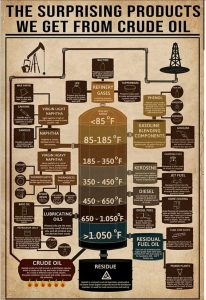
By Admin
In today’s world, crude oil is a critical resource that powers much of our daily lives, from the gasoline in our cars to the plastic in everyday products. But have you ever wondered what actually comes out of refining a single barrel of crude oil? The process is complex and the output is varied, yielding a range of petroleum products used across industries.
A standard barrel of crude oil contains around 159 liters of liquid. Once it passes through a refinery, this barrel is broken down into multiple key products. On average, the largest portion goes toward gasoline, which accounts for about 45% to 50% of the total volume. This means roughly 73 liters of gasoline can be extracted from just one barrel, fueling countless vehicles around the world.
Following closely behind is diesel, which makes up around 23% to 25%. This translates to about 36 liters, which powers trucks, buses, and industrial machinery. Jet fuel, which is essential for aviation, comprises around 9% to 10% of a barrel’s output, providing about 15 liters.
In addition to these transportation fuels, refineries also produce other vital products. Around 7 liters of fuel oil, primarily used in heating and industrial operations, and 6 liters of liquefied petroleum gas (LPG), used for cooking and heating, come from each barrel. Finally, the remaining volume is composed of miscellaneous products like asphalt, lubricants, and petrochemical feedstocks, which are essential for producing plastics and other materials.
The exact breakdown of products can vary based on the type of crude oil processed and the specific refining techniques employed. Nevertheless, this process highlights the critical role refineries play in ensuring a steady supply of energy and industrial raw materials to meet global demands.
From fueling cars and planes to creating materials used in countless products, the refining of crude oil is a cornerstone of modern industry. As technology advances, these processes continue to evolve, aiming to maximize efficiency and minimize environmental impact.
© IduwiniVoice
IduwiniVoice Knowledge
A Colossus of the Seas: Remembering the Seawise Giant
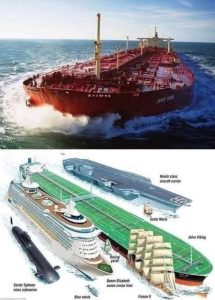
By Perezide, Maritime Weekly
At a time when shipbuilding pushed the boundaries of what was thought possible, one vessel stood above the rest-literally. The Seawise Giant, later known as the Knock Nevis, holds the distinction of being the longest ship ever conducted, an awe-inspiring example of Maritime engineering, (Measuring an extraordinary 1,504 feet (458 meters) from bow to stern, the supertanker was longer than the Empire State building is tall.
Commissioned in 1979 and decommissioned in 2009, the Seawise Giant was a floating titan with capabilities that redefined global shipping. Designed to carry crude oil, it could transport more than 4 million barrels in a single voyage nearly -5% of the world’s daily oil consumption. It’s vast size, however, made it an outlier: it was too large to navigate the Size Canal or even the English Channel, restricting it to only the deepest and broadest stretches of ocean.
More than just a behemoth, the vessel was a fortress of steel. It’s hull was heavily reinforced, and it was equipped with multiple watertight components and built-in safety redundancies. This formidable structure made it extraordinarily resistant to damage, leading to speculation about how it would fare in a hypothetical battle against an aircraft carrier. While not invincible, bringing it down would have demanded precise targeting, immense firepower, and considerable efforts.
Though it’s operational life has ended, the legacy of the Seawordment endures. It remains a symbol of industrial ambition and the limits of naval architecture. I a world increasingly focused on efficiency and sustainability, the Seawise Giant stand’s as a monumental chapter in Maritime history -an enduring reminder of humanity’s reach across the oceans.
Advert
Video: House of Representatives Committee Proposes Creation of 31 New States in Nigeria
By Admin
Abuja – A proposal to create 31 additional states across Nigeria is currently under consideration by the House of Representatives Committee on Constitutional Review. According to the committee, the move aims to address concerns about representation, governance, and regional development across the country.
The proposed states are distributed across various geopolitical zones, with six states suggested for the North-Central region, four for the North-East, five for the North-West, five for the South-South, and seven for the South-West. The committee has indicated that the proposal is in line with Section 8(1) of the Nigerian Constitution, which outlines the requirements for state creation.
Proposed States by Region
North-Central
1. Benue Ala (Benue)
2. Okun (Kogi)
3. Okura (Kogi)
4. Confluence (Kogi)
5. Apa-Agba (Benue South Senatorial District)
6. Apa (Benue)
7. Federal Capital Territory, Abuja (as an autonomous state)
North-East
8. Amana (Adamawa)
9. Katagum (Bauchi)
10. Savannah (Borno)
11. Muri (Taraba)
North-West
12. New Kaduna (Kaduna)
13. Gurara (Kaduna)
14. Tiga (Kano)
15. Kainji (Kebbi)
16. Ghari (Kano)
South-East
17. Etiti (New)
18. Adada (Enugu)
19. Urashi (New)
20. Orlu (Imo)
21. Aba (Abia)
South-South
22. Ogoja (Cross River)
23. Warri (Delta)
24. Bori (Rivers)
25. Obolo (Rivers & Akwa Ibom), possibly a renamed Oil Rivers State
South-West
26. Toru-Ebe (Delta, Edo & Ondo)
27. Ibadan (Oyo)
28. Lagoon (Lagos & Ogun)
29. Ibeju (Ogun)
30. Ife-Ijesha (Ogun, Oyo & Osun)
31. Oke-Ogun (Ogun, Oyo & Osun)
Constitutional Process for State Creation
The proposal will require approval through a series of legislative steps. The Nigerian Constitution stipulates that for a new state to be established, it must be supported by at least a two-thirds majority in the National Assembly, the State House of Assembly, and local government councils in the affected areas. Additionally, a referendum will be conducted, with the final decision forwarded to the National Assembly for ratification.
This proposed restructuring has generated mixed reactions, with some viewing it as a step toward decentralization and regional autonomy, while others question its feasibility given Nigeria’s economic and political landscape.
What are your thoughts on this development? Share your views!
Advert
INC Demands the Creation of Toru-ebe and Oil Rivers States to Address the Underdevelopment of Ijaw Nation.
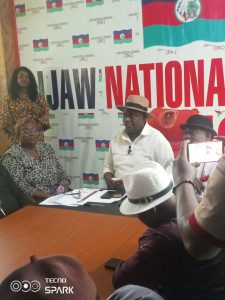
By Admin – Yenagoa
Ijaw National Congress (INC), the highest socio-cultural body representing the Ijaw people globally, has renewed its call for the establishment of two homogeneous Ijaw states—Toru-Ebe and Oil Rivers—citing persistent infrastructural under-development, political marginalization, and environmental neglect.
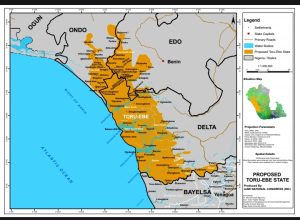
This was disclosed during a press conference held on Wednesday at Ijaw Ware in Yenagoa, Bayelsa State. The INC President, Prof. Benjamin Okaba, emphasized that despite being Nigeria’s fourth-largest ethnic group and hosting some of the country’s key oil export terminals as the single highest producer of oil and gas, the Ijaw people have endured systemic neglect, both in infrastructure and politics.
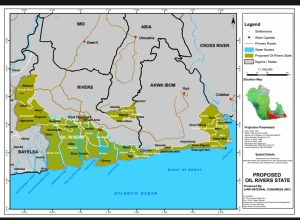
“We call on the Senate President, the Speaker of the House of Representatives, and all distinguished members of the National Assembly to seize this moment in history and act in the interest of justice,” Prof. Okaba stated.
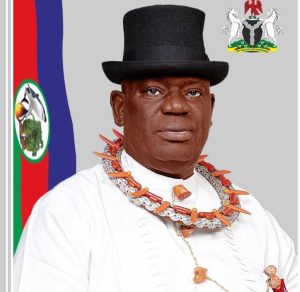
He described this demand as a crucial step toward achieving justice, equity, and lasting peace in the Niger Delta, stressing that it would help redress historical injustices, drive economic progress, and secure a better future for the Ijaw people.
According to the INC, the creation of the proposed states would not only address issues of political exclusion and under-development, but also strengthen national unity. The organization urged all Ijaw people, along with other well-meaning Nigerians, to support the move towards the actualization of this critical milestone for fairness and equity.
